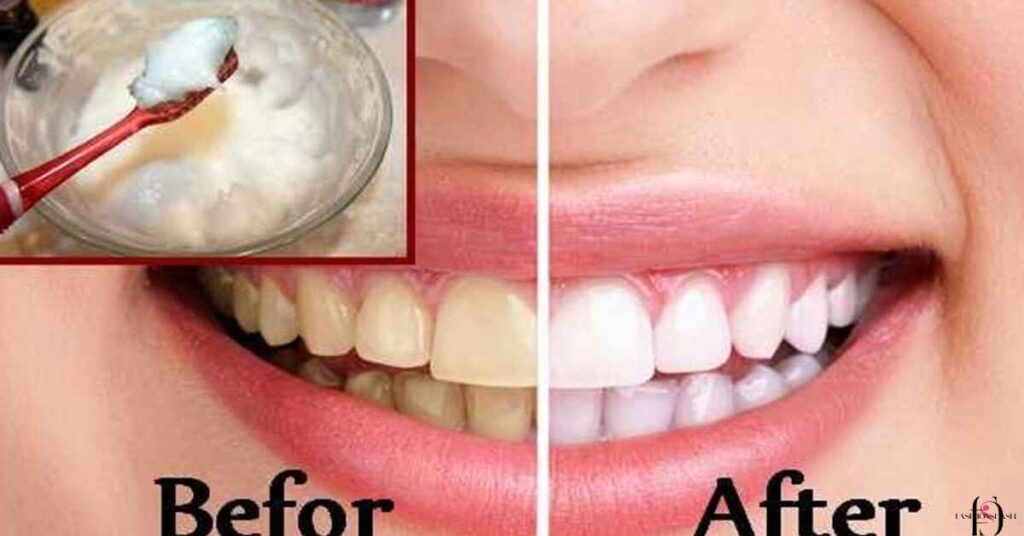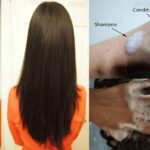Removing calcium deposits on enamel at domestic is essential for oral health. Firstly, use baking soda paste to softly brush enamel, concentrated on areas with deposits.
Subsequent, rinse with a hydrogen peroxide option to dissolve tartar buildup. Diluted apple cider vinegar can also ruin down deposits whilst used as a mouthwash. Try oil pulling with coconut or sesame oil to eliminate bacteria and plaque.
Adopting preventive measures like ordinary brushing, flossing, and dental checkups can similarly prevent tartar formation.
What Are Calcium Deposits?
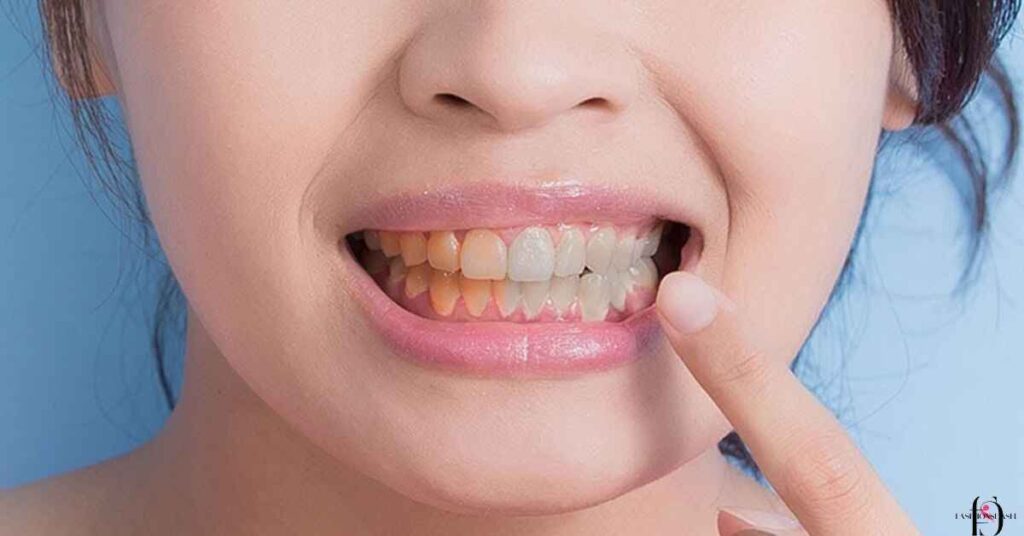
Calcium deposits, also called tartar or calculus, are hardened mineral deposits that gather at the surfaces of enamel. They’re in general composed of calcium phosphate and calcium carbonate, which can be minerals discovered in saliva.
Those deposits form while plaque, a sticky film of microorganism and meals particles, isn’t always appropriately eliminated from the tooth through ordinary brushing and flossing. Over time, plaque hardens and mineralizes to form tartar that could appear as yellow or brownish deposits at the teeth, mainly along the gum line.
Calcium deposits can make contributions to dental problems consisting of cavities, gum ailment, and terrible breath if not addressed directly thru proper oral hygiene and expert dental cleanings.
Read This Blog: HOW ARE BALLET SHOES SUPPOSED TO FIT
What Is Plaque?
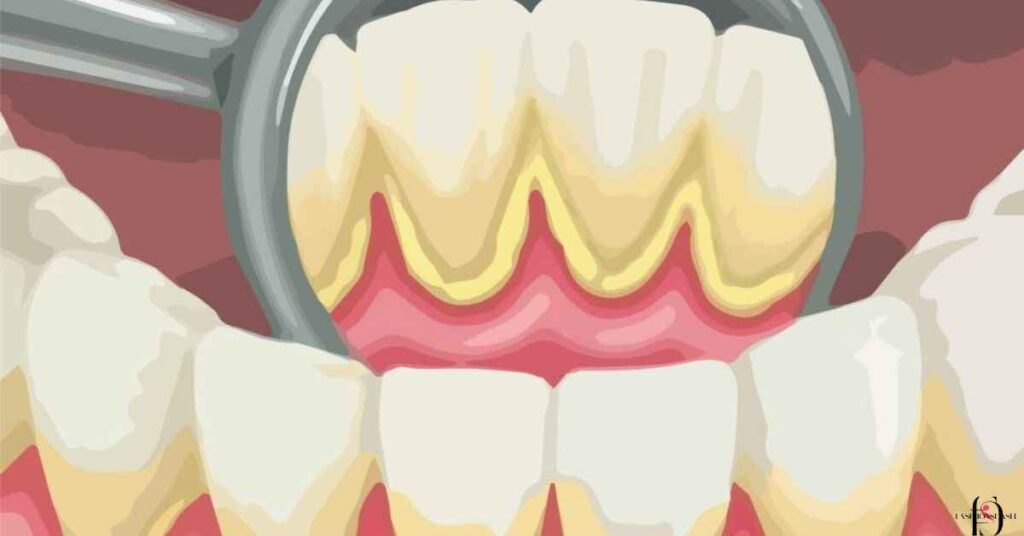
Plaque is a sticky, colorless film of bacteria that bureaucracy on the tooth and alongside the gum line. Its miles constantly forming at the teeth because of the interplay of bacteria inside the mouth with sugars and starches from meals debris.
If no longer eliminated regularly thru brushing and flossing, plaque can harden into tartar (additionally referred to as calculus), that is extra difficult to eliminate and may cause dental troubles along with cavities, gum disease, and terrible breath.
Plaque incorporates dangerous bacteria that produce acids that may assault tooth and reason decay. Maintaining good oral hygiene practices is critical for preventing plaque buildup and preserving oral health.
Do Calcium Spots On Teeth Go Away?
Calcium spots on teeth, additionally known as dental fluorosis or white spots, can vary in severity and might or might not leave on their personal. In mild cases, where the spots are superficial and restricted to the tooth, they’ll enhance through the years with right oral hygiene practices inclusive of everyday brushing, flossing, and expert dental cleanings.
However, in greater extreme cases in which the spots are deeper or have affected the underlying layers of the enamel, they may be more continual and might require professional dental treatment to cope with.
Dental remedies together with micro abrasion, enameloplasty, or dental bonding can be advocated by a dentist to improve the appearance of calcium spots on teeth.
Also Read This Blog: WHAT COLORS GO WITH GREEN SHOES
It is essential to consult with a dentist for an accurate assessment and suitable treatment hints primarily based at the severity of the calcium spots and man or woman oral fitness desires.
Moreover, preventive measures which include warding off excessive fluoride intake and preserving excellent oral hygiene can assist save you the improvement of recent calcium spots on enamel within the future.
Can You Remove Calcium Deposits At Home?
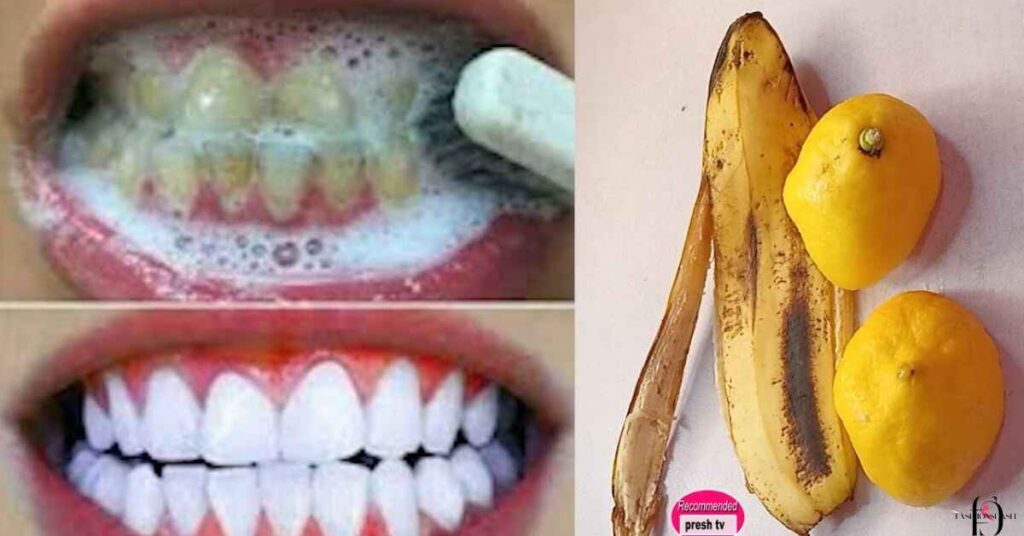
At the same time as professional dental cleaning is the simplest way to do away with cussed calcium deposits on enamel, there are some domestic treatments that could help reduce their look and save you similarly buildup. Right here are some strategies you could attempt at domestic.
- Baking Soda Paste: Create a paste by using mixing baking soda with a small quantity of water. Lightly brush your teeth with this paste that specialize in regions with calcium deposits. Baking soda’s abrasive nature can assist take away tartar buildup.
- Hydrogen Peroxide Rinse: blend identical elements of hydrogen peroxide and water. Sleek the solution round for your mouth for 1-2 minutes then spit it out. Hydrogen peroxide can help dissolve tartar and whiten tooth.
- Apple Cider Vinegar: Dilute apple cider vinegar with water and use it as a mouthwash. Its acidic properties may assist smash down calcium deposits. But, use it sparingly as excessive use may also damage enamel tooth.
- Oil Pulling: swish coconut oil or sesame oil around in your mouth for 15-20 minutes, and then spit it out. Oil pulling can assist take away microorganism and plaque, which make a contribution to tartar formation.
Whilst these domestic remedies may additionally help lessen the arrival of calcium deposits and sell general oral fitness, they may not completely dispose of stubborn deposits. It is vital to preserve top oral hygiene practices, which includes regular brushing, flossing, and dental checkups, to prevent tartar buildup and address any underlying dental troubles. When you have extreme tartar buildup or worries about your oral health, consult a dentist for expert assessment and treatment.
Why Do I Get Calcium Deposits on My Teeth?
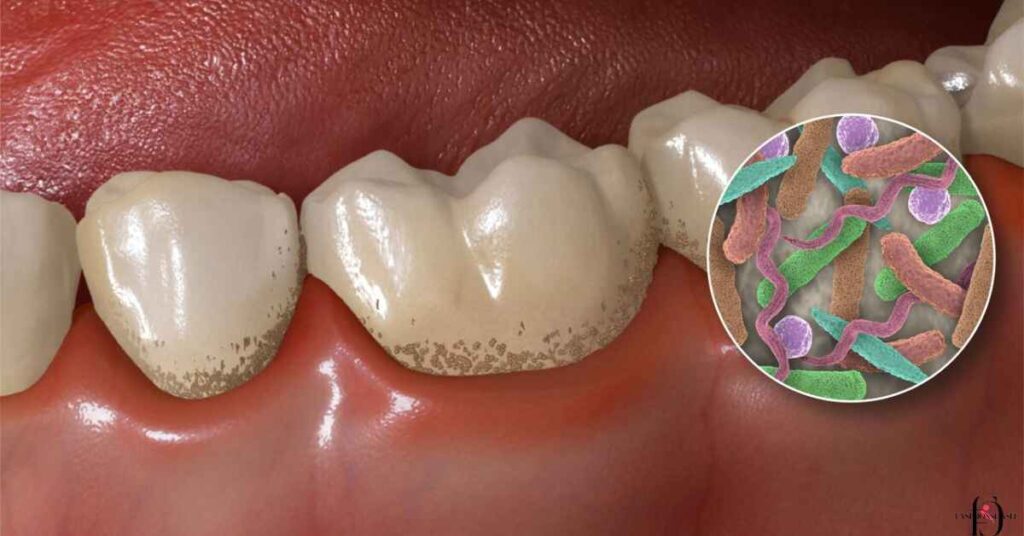
Calcium deposits on enamel, also called tartar or calculus, shape because of an aggregate of factors related to oral hygiene, food regimen, and character predispositions. Here are some common motives why calcium deposits can also develop on your enamel.
- Plaque Buildup: Plaque, a sticky film of microorganism, forms on enamel whilst meals debris and sugars interact with bacteria inside the mouth. If plaque isn’t always thoroughly eliminated thru normal brushing and flossing, it is able to harden into tartar, which contributes to the formation of calcium deposits.
- Negative Oral Hygiene: Inconsistent or inadequate oral hygiene practices, consisting of infrequent brushing and flossing, permit plaque to accumulate on tooth, main to tartar buildup and calcium deposits over the years.
- Dietary elements: eating a food regimen high in sugars, carbohydrates, and acidic foods and beverages can sell the formation of plaque, which increases the danger of tartar buildup and calcium deposits on enamel.
- Smoking and Tobacco Use: Smoking and the usage of tobacco products no longer most effective make contributions to plaque accumulation but additionally interfere with the body’s capability to combat bacterial infections within the mouth, increasing the risk of tartar formation and calcium deposits.
- Age and Genetics: As we age, the composition and go with the flow of saliva can also exchange, making it less complicated for tartar to increase on tooth. Moreover, genetics can play a role in determining a man or woman’s susceptibility to tartar buildup and calcium deposits.
- Medical conditions: positive clinical situations and medicines may affect saliva manufacturing or composition, main to an increased danger of tartar formation and calcium deposits on tooth.
overall, maintaining correct oral hygiene behavior, including regular brushing, flossing, and dental checkups, at the side of a balanced weight loss plan and keeping off tobacco use, can help save you tartar buildup and reduce the risk of calcium deposits on tooth. if you experience persistent tartar buildup or have issues about your oral fitness, consult a dentist for personalized recommendation and remedy.
How To Get Rid Of Calcium Deposits On Teeth
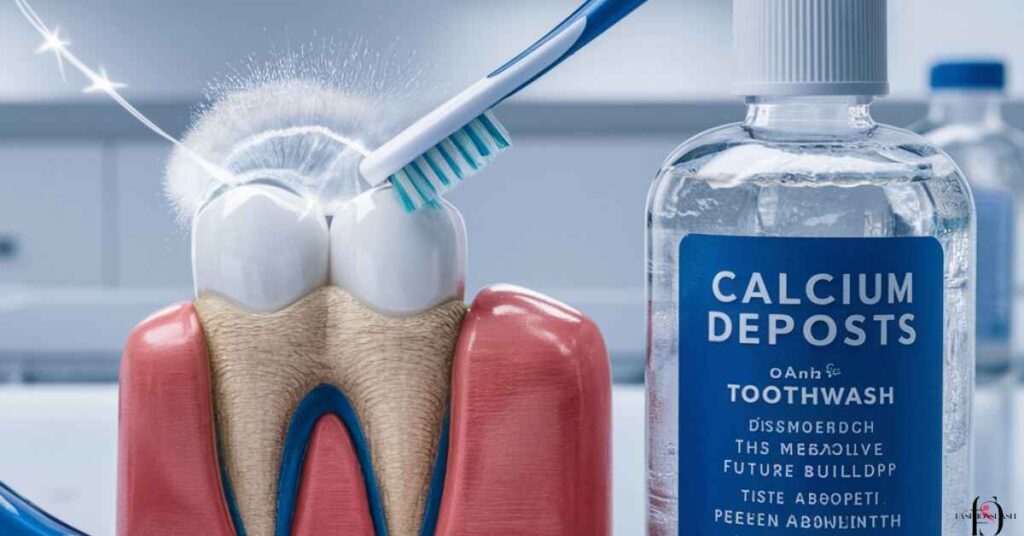
To effectively cast off calcium deposits on tooth, it’s essential to appoint a combination of domestic care practices and professional dental treatments. Here’s how to cope with calcium deposits on teeth.
- Regular Brushing and Flossing: Brush your tooth at the least twice a day and floss every day to eliminate plaque buildup, which can harden into tartar and contribute to calcium deposits. Use fluoride toothpaste and a tender-bristled toothbrush to efficiently easy all surfaces of your tooth.
- Professional Dental cleaning: agenda normal dental checkups and expert cleanings with your dentist or dental hygienist. Professional cleanings involve the elimination of tartar and plaque buildup the use of specialized units that may efficiently remove calcium deposits out of your teeth.
- Scaling and Root Planning: For greater excessive cases of tartar buildup and calcium deposits, your dentist may additionally advocate scaling and root planning. This deep cleansing manner entails casting off tartar and microorganism from beneath the gum line and smoothing the teeth roots to prevent in addition buildup.
- Home treatments: at the same time as domestic remedies may not completely take away cussed calcium deposits, they are able to help reduce their appearance and prevent in addition buildup. Try the use of baking soda paste, hydrogen peroxide rinse, or diluted apple cider vinegar as mouthwash to assist break down tartar and preserve oral hygiene.
- Dietary changes: limit your consumption of sugary and starchy ingredients, as they are able to make contributions to plaque formation and tartar buildup. Drink masses of water and devour a balanced diet wealthy in fruits, vegetables, and dairy products to promote healthful tooth and gums.
- Quit Smoking: in case you smoke or use tobacco merchandise, do not forget quitting. Smoking now not best increases the hazard of tartar buildup but also contributes to numerous oral health issues, which includes gum disease and tooth decay.
- Follow Dental pointers: observe any extra suggestions furnished through your dentist, which include the usage of tartar-manage toothpaste or mouthwash, to help prevent destiny calcium deposits to your enamel.
By combining those techniques, you could effectively eliminate current calcium deposits to your enamel and prevent their recurrence, promoting better oral health standard. if you have continual calcium deposits or underlying dental troubles, consult your dentist for personalized recommendation and remedy options.
Calcium Deposits Prevention Tips
Stopping calcium deposits on enamel is fundamental to maintaining surest oral health. Right here are some effective guidelines to help prevent the formation of calcium deposits.
- Preserve excellent Oral Hygiene: Brush your enamel as a minimum twice an afternoon and floss day by day to take away plaque buildup, which can harden into tartar and contribute to calcium deposits. Use fluoride toothpaste and a smooth-bristled toothbrush to successfully smooth all surfaces of your teeth.
- Normal Dental Checkups: agenda normal dental checkups and professional cleanings with your dentist or dental hygienist. Professional cleanings can eliminate tartar buildup earlier than it hardens into calcium deposits, supporting to save you their formation.
- Use Tartar-control Toothpaste: pick out toothpaste in particular formulated to save you tartar buildup. These toothpastes frequently contain components like fluoride and pyrophosphates that could inhibit tartar formation and decrease the threat of calcium deposits on teeth.
- Limit Sugary and Starchy ingredients: reduce your intake of sugary and starchy ingredients, as they could make contributions to plaque formation and tartar buildup. Rather, opt for a balanced weight loss plan rich in fruits, greens, and dairy products, which could sell healthful enamel and gums.
- Drink Water: Drink masses of water in the course of the day, specifically after meals. Water allows rinse away meals particles and bacteria which can make a contribution to plaque formation and tartar buildup.
- Bite Sugar-loose Gum: Chewing sugar-free gum after meals can assist stimulate saliva manufacturing, which could help neutralize acids and wash away meals particles which could result in plaque and tartar formation.
- End Smoking: in case you smoke or use tobacco merchandise, keep in mind quitting. Smoking not only increases the chance of tartar buildup however additionally contributes to diverse oral health troubles, consisting of gum ailment and teeth decay.
- Use Fluoride Mouthwash: Rinse with a fluoride mouthwash each day to assist toughen teeth enamel and prevent the formation of cavities, which can make a contribution to tartar buildup and calcium deposits on enamel.
Through incorporating those preventive measures into your oral care habitual, you could efficaciously lessen the risk of calcium deposits in your teeth and hold a wholesome smile. When you have any issues about your oral health or want customized advice, seek advice from your dentist for guidance.
Are Dental Implants Painful?
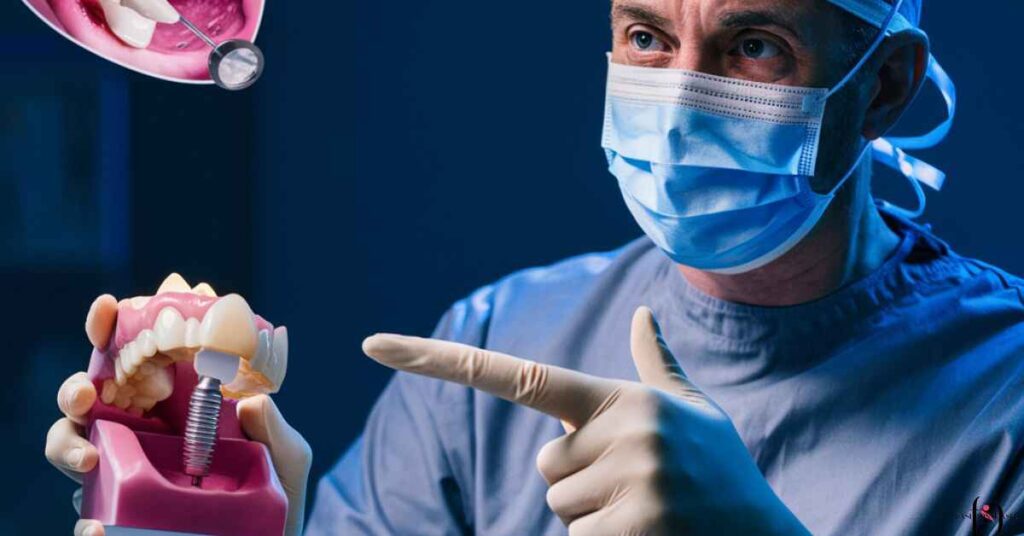
Dental implants would possibly cause a few soreness, but the method is typically done with numbing medicine, so you should not sense pain throughout it.
After the surgical treatment, you might sense pain or swelling for a few days, however your dentist can come up with remedy to help with that. As soon as the implant heals, it should not harm, and you’ll have a robust and natural-looking tooth that feels much like your real ones. In case you’re worried about pain, speak on your dentist—they will ensure you are comfortable for the duration of the manner.
What to Expect During Your Sedation Dentistry Appointment
All through your sedation dentistry appointment, you will feel calm and secure. Before your remedy, the dentist will come up with medicine to help you relax or sleep. You would possibly sense drowsy or blind to what’s occurring in the course of the process.
The dentist can even numb your mouth, so that you may not sense any pain. In a while, you will rest till the medication wears off. You may feel a bit sleepy in a while, so it’s suitable to have a person to take you domestic. Sedation dentistry makes dental visits easier for those who feel stressful or scared approximately dental work.
What Causes Hypo plastic Teeth?
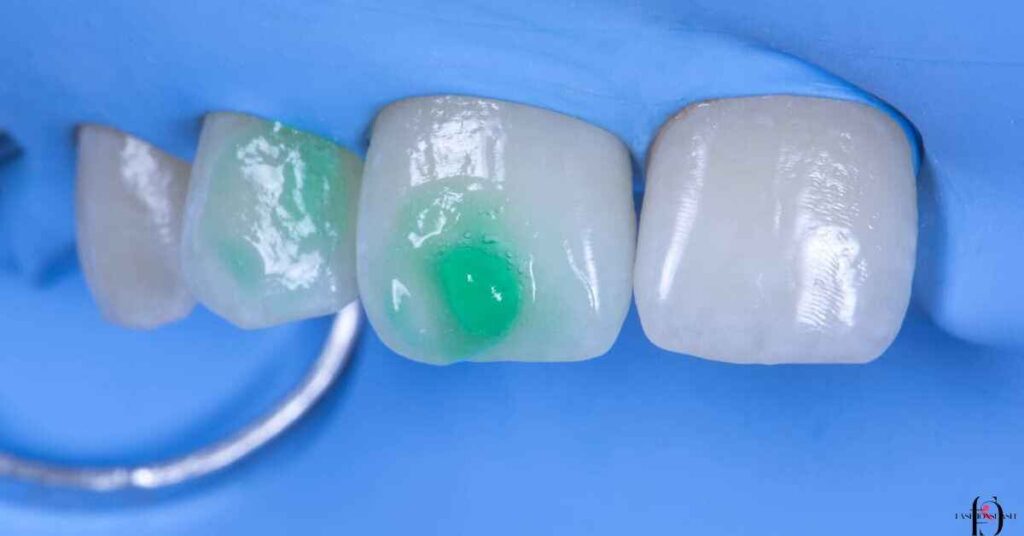
Hypo plastic teeth appear while the teeth, the difficult outer layer of teeth, don’t form well. This may be due to things like genetics, infections, or certain fitness situations whilst a person is growing within the womb or as a child.
Once in a while, such things as negative nutrition or too much fluoride also can play a component. When enamel doesn’t have enough enamel, they could look discolored, experience touchy, or be extra liable to cavities. It’s crucial to peer a dentist in case you observe any issues along with your tooth.
Can a Pacifier Ruin My Baby’s Teeth?
The usage of a pacifier can affect your child’s tooth if it’s used for too lengthy or within the wrong way.
when infants suck on a pacifier for a long term, in particular at some point of sleep or when their enamel are coming in, it can have an effect on the alignment of their enamel or the shape in their mouth.
This could result in troubles like misaligned enamel or issues with the growth in their jaws. To assist save you this, it’s proper to step by step wean your baby off the pacifier via around age 2 or encourage them to apply it simplest at unique times, like when they’re going to sleep. Always check along with your pediatrician or dentist when you have issues about your toddler’s oral health.
What Causes Bad Breath?
Horrific breath, additionally referred to as halitosis, may be due to different factors. Some common reasons consist of.
- Poor Oral Hygiene: bacteria inside the mouth spoil down meals debris, freeing foul-smelling gases. If now not eliminated through normal brushing and flossing, this microorganism can result in horrific breath.
- Food and drink: certain ingredients and drinks, along with onions, garlic, espresso, and alcohol, can contribute to bad breath due to their robust odors.
- Dry Mouth: Saliva facilitates cleanse the mouth by using washing away food debris and bacteria. When the mouth is dry, which include in the course of sleep or because of certain medications, microorganism can thrive, main to horrific breath.
- Smoking and Tobacco Use: Tobacco products can depart a lingering scent inside the mouth; in addition to increase the danger of gum disorder and other oral fitness issues that contribute to bad breath.
- Negative Dental fitness: Untreated cavities, gum disorder, and oral infections can release unsightly odors and make a contribution to horrific breath.
- Clinical conditions: sure medical situations, consisting of sinus infections, breathing infections, acid reflux, diabetes, and liver or kidney disorder, can cause awful breath as a symptom.
- Dieting and Fasting: Low-carbohydrate diets and fasting can lead to the breakdown of fats, producing chemical compounds known as ketones which could cause awful breath.
- Stress: stress can result in dry mouth and adjustments in saliva production, which could make contributions to awful breath.
To cope with terrible breath, it’s vital to exercise good oral hygiene, inclusive of regular brushing, flossing, and tongue cleansing. Consuming masses of water, averting tobacco use, and scheduling normal dental checkups also can assist save you and treat bad breath.
If awful breath persists notwithstanding these measures, it’s critical to seek advice from a dentist or healthcare expert to rule out any underlying clinical conditions.
Frequently asked question
Can I remove calcium deposits at home?
Yes, with remedies like baking soda paste or hydrogen peroxide rinse, but professional cleaning may be needed for stubborn deposits.
How often should I brush to prevent calcium deposits?
Brush at least twice daily and floss once a day to remove plaque and prevent tartar buildup, reducing calcium deposits.
Will oil pulling help remove calcium deposits?
Oil pulling with coconut or sesame oil may reduce bacteria and plaque, but its best used alongside regular dental care for optimal results.
Can calcium deposits on teeth cause pain?
While deposits themselves might not cause pain, they can lead to issues like cavities or gum disease if left untreated, which may be painful.
Are there risks to using home remedies for calcium deposits?
Home remedies like acidic mouthwashes may damage tooth enamel if overused, so it’s important to use them cautiously and in moderation.
How can I prevent calcium deposits from coming back?
Maintain good oral hygiene, avoid sugary foods, and schedule regular dental cleanings to prevent tartar buildup and calcium deposits.
Conclusion
While there are several home treatments available for putting off calcium deposits on tooth, it is important to approach them with caution and at the side of professional dental care. domestic remedies like baking soda paste, hydrogen peroxide rinse, and oil pulling can assist reduce the appearance of calcium deposits and sell overall oral fitness.
But, for cussed or intense deposits, professional dental cleaning and treatment can be essential to effectively eliminate them. Moreover, adopting preventive measures inclusive of ordinary brushing, flossing, and dental checkups can help save you the formation of latest calcium deposits and maintain a healthful smile. Consulting a dentist for customized recommendation and treatment is important for addressing calcium deposits on tooth efficaciously and making sure top-quality oral fitness in the long term.

